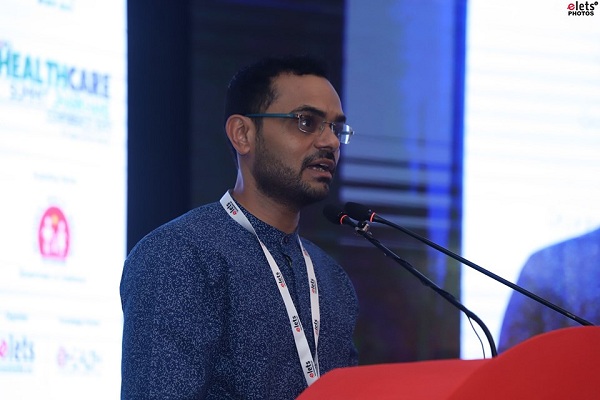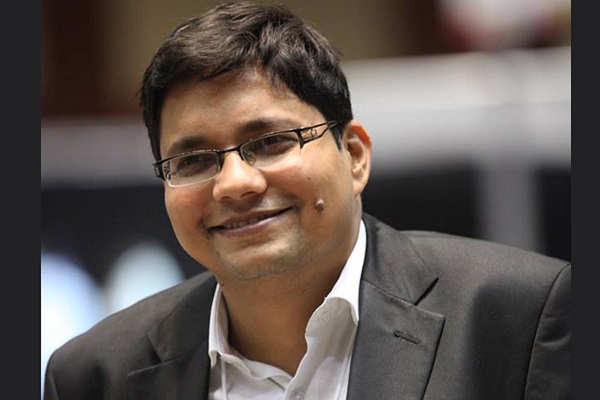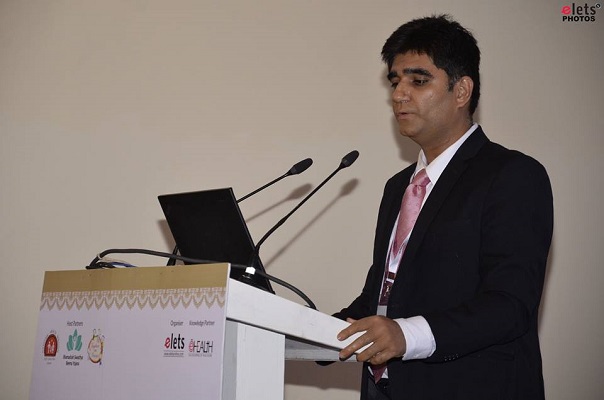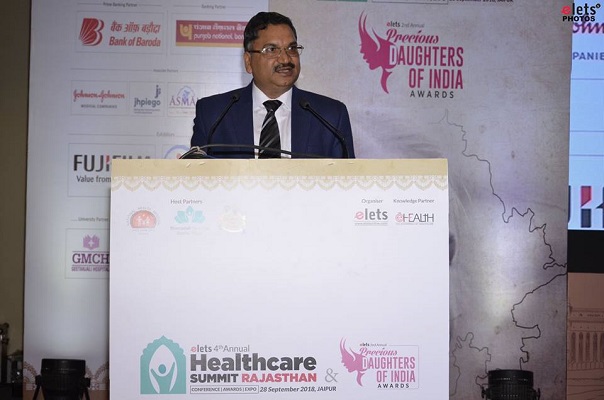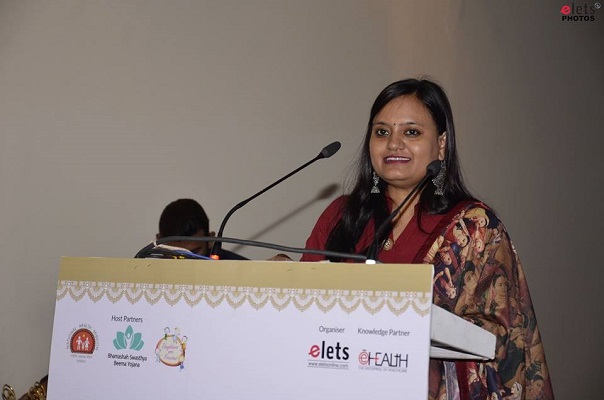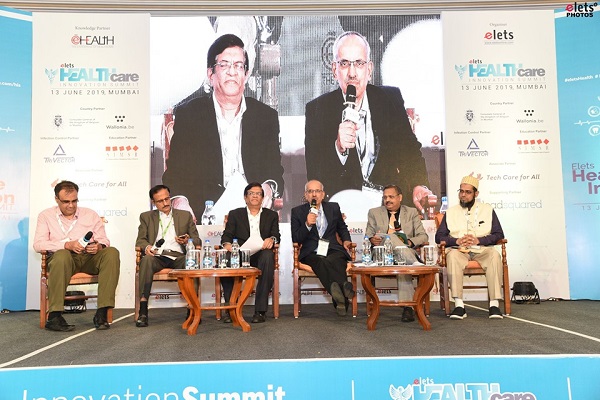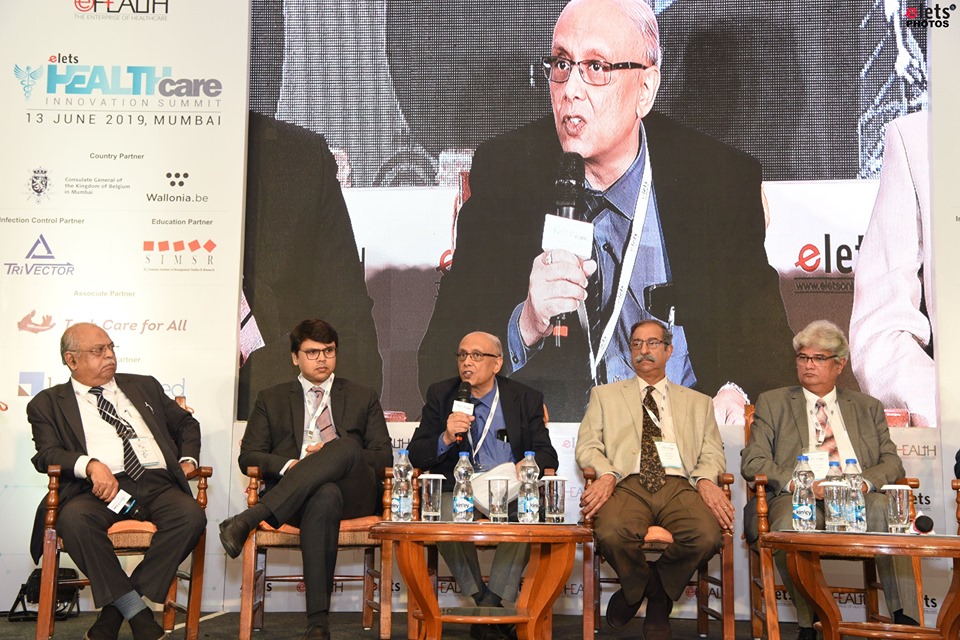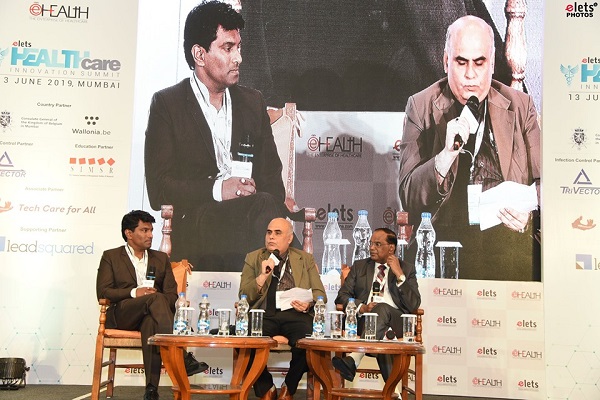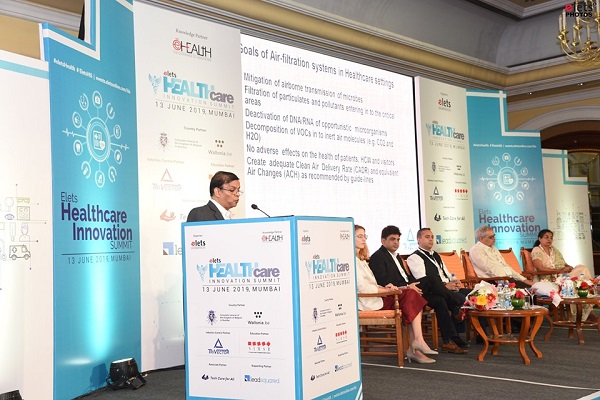
Speaking at the Healthcare Innovation Summit, Dilip Patil, Founder Director, Trivector Group & Baby Quest Cryobank talks about controlling infection in the hospitals and how it can be done cost effectively.
Talking about eliminating infections in hospitals through air filtration, Patil said, “The main goal of the air filtration system in the healthcare settings is to mitigate the airborne transmission of the microbes or the pathogens. This kind of a situation demands filtering the particulates, the pollutants which are entering the critical areas of the healthcare system. At the same time, it is essential to deactivate the DNA or RNA of the opportunistic microorganisms and eliminate the volatile organic compounds into inner molecules.”

“We don’t want the chemicals to be in the air so decomposing them is the suitable option. While doing this, we have to take care that there is no adverse effect on the health of the patients and healthcare workers as well as the visitors”, Patil added.
With limited resources in a country like India, Patil continued, “The processes should be economical, hassle free and sustainable. It is important to monitor and validate the air quality from time to time and corrective actions should be taken. It is a matter of concern that the airborne viruses or pathogens are going to consume lot of people. But unfortunately, on a daily basis, new variations pose as a threat in the healthcare scenario.”

Moving on with his presentation, Patil shared some insights on how the airborne microbes transmit in the air in the hospitals. He said, “There are patients who shed skin cells along with other body movements. There are 3 types of things which are transmitted through air. The thickest one is 20 micron which is normally bacteria which settles within 4 minutes. There is small micron of 10 micron size which takes about 17 minutes to settle down. But the most dangerous is the infectious droplets which are very small, around 1-3 micron and unfortunately they remain suspended in the air forever.”
“Unless you do something to eliminate these harmful viruses, it will be there in the room”, Patil added.
We all know that infection can be transmitted by air by direct or indirect contact of your surroundings. Shedding light on how to close the infection control loop, Patil said, “Whatever is there in the air that settles in the surfaces, our hands are contaminated. The airborne pathogens present in the air are infectious and can travel as infectious droplets or dust particles. These then fall on the surfaces, creating contact points for hands.”
Furthermore, focusing on technology driven actions, Patil talked about the air clean technologies, where he mentioned the use of two technologies namely, trapping of the technology which means hedging of the microorganisms and deactivating technology which refers to eliminating of the microorganisms.
Another point of focus in his presentation was the HEPA filtration where Patil said, “HEPA filtration filters particles which are greater than 0.3 microns but viruses are much more smaller than that. These viruses are not filtered by HEPA filters as they are prone to humidity and accordingly not very effective during that time. Hospital owners can identify that it requires high cost of maintenance as well as electricity. It is not advisable to use it in occupied areas.”
Also read: Govt may allow dentists to practice mainstream medicine soon
Highlighting new innovative initiatives to control infection in hospitals, Patil said, “Modern medicine including infection control require four Ps-predictive, preventive, personalised, and participatory technology. There should be reliable and rapid diagnostics with news technology, point of care testing, quickness in detection and isolation of disease and containment. Infection control technology should be sustainable, scalable, and economical.”
Be a part of Elets Collaborative Initiatives. Join Us for Upcoming Events and explore business opportunities. Like us on Facebook , connect with us on LinkedIn and follow us on Twitter , Instagram.


